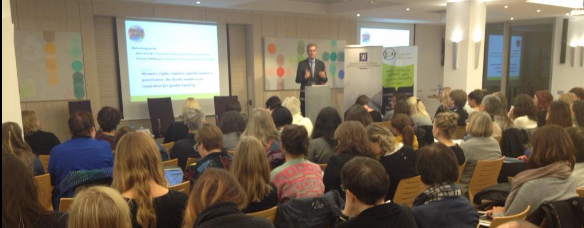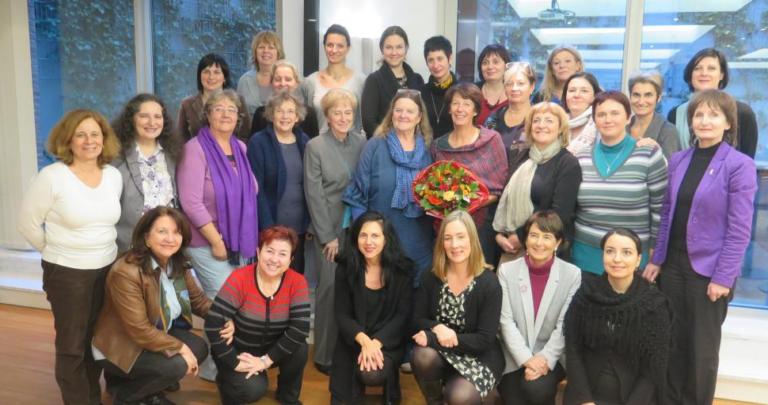Sixty years ago, December 2, 1949, the United Nations (UN) adopted the Convention for the Suppression of the Traffic in Persons and the Exploitation of the Prostitution of Others. Since then, 74 countries have ratified it, including 18 of the 27 member countries of the European Union. ‘Prostitution and the accompanying evil of the traffic in persons for the purpose of prostitution are incompatible with the dignity and worth of the human person and endanger the welfare of the individual, the family and the community’ (Preamble to the 1949 Convention).
“This convention is the result of a long abolitionist and feminist battle, and forms part of the corpus of international instruments of the United Nations to fight against all forms of slavery and the exploitation of human beings. For the European Women’s Lobby (EWL), it is the ideological and humanistic basis of our action for women’s rights and human rights and against prostitution, an intolerable form of male violence”, says Brigitte Triems, President of the EWL.
“Today it is estimated that 79% of human trafficking is for sexual exploitation, and that 80% of these victims are women. There are, according to UN figures, over 250 000 people trafficked in Europe. We, women’s organizations, have always emphasized the link between prostitution and human trafficking, as it is clear that European tolerance for the prostitutional system enables and fuels trafficking in women for sexual exploitation in our countries”, says Colette De Troy, director of the EWL European Policy Action Centre on Violence against women.
The text of the UN convention is nevertheless clear that ‘any person who ‘procures, entices or leads away, for purposes of prostitution, another person, even with the consent of that person’ shall be punished. “According to the ’survivors’ who have escaped prostitution, more than 95% of prostitutes would leave prostitution if they had a choice. We must stop presenting prostitution as choice. We must fight to preserve human dignity and prevent the human body and sexuality from entering the market. That’s why we want to fully recognize the status of victims and prostitutes to assert their human full rights. Prostitute-users and pimps must be blamed and punished, for reducing women’s bodies and their sexuality to the status of goods.”
“While the majority of European countries have ratified the Convention, very few respect it. In the EU, there is a wide disparity of approaches in different countries: in the Netherlands pimping has been decriminalized leading to employment agencies offering jobs as prostitutes or ’sexual attendants’; in Sweden prostitute users have been criminalised, as part of the national global policy of equality between women and men”, says Colette De Troy. “In the absence of European political commitment against all forms of male violence against women, prostitution has developed and prostitute-users exonerate themselves. Trafficking in women and sex tourism are the direct consequences of the impunity enjoyed by pimps and prostitute users.”
On the occasion of this 60th anniversary, the EWL urges the European institutions and the EU member states to recognize prostitution as a serious form of violence against women, in reiterating their commitment under the Convention and integrating prostitution in any future legal tools they will apply. The European Parliament has just adopted two resolutions calling for a European legal basis for fighting against all forms of male violence against women, as a directive and a European Action Plan. This is a vital opportunity for the EU!


